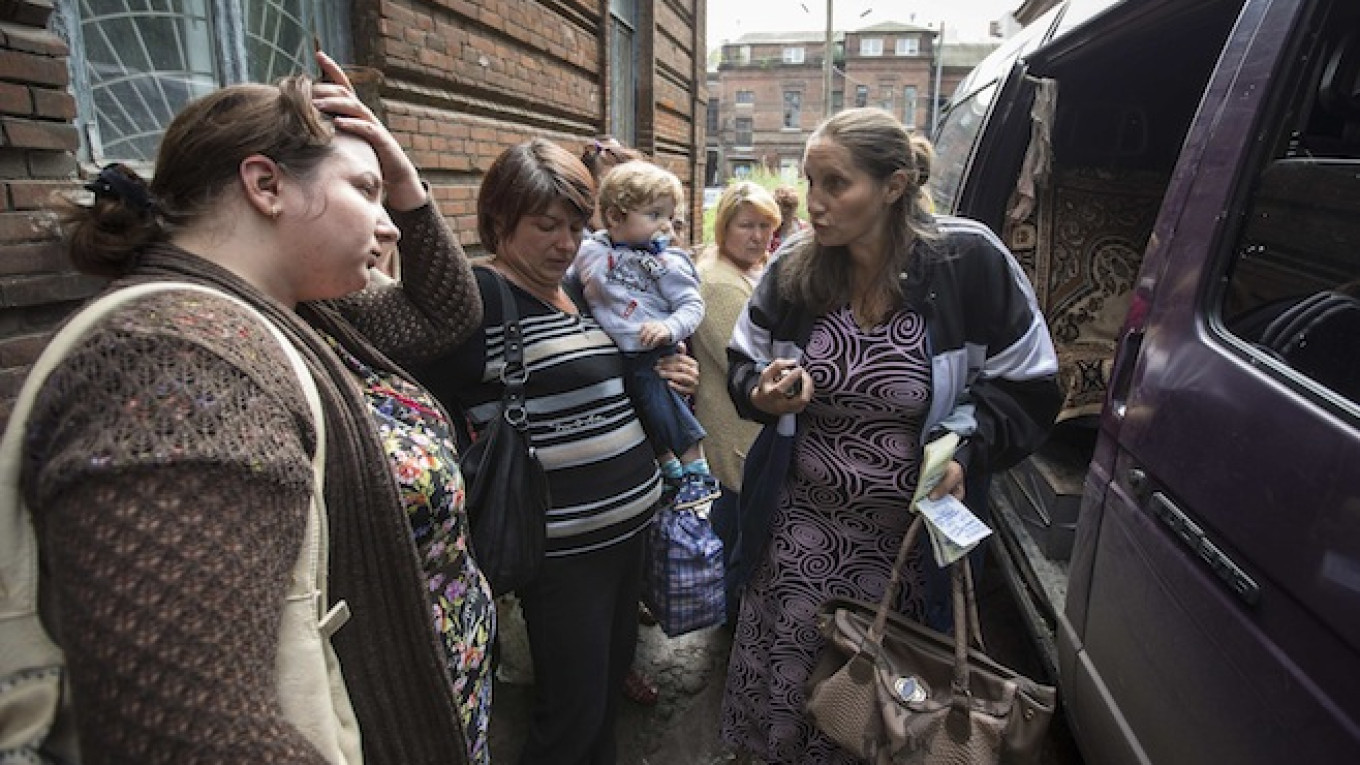Some 16,400 people have fled their homes in eastern Ukraine in the past week, many citing deteriorating security and fears of abduction, and the number of displaced within the country has risen to 54,000, the United Nations said Friday.
"We are seeing a sharp increase in [internal] displacement in Ukraine," Melissa Fleming, chief spokeswoman of the UN High Commissioner for Refugees, or UNHCR, told a news briefing.
"Displaced people cite worsening law and order, they say that they fear abductions and that there are human rights violations as well as the destruction of state services," Fleming said. "And some say that they have received personal threats on account of their political opinion or ethnic or linguistic background."
The figure of 54,000 includes 12,000 who fled Ukraine's Crimea region, which was seized by Russia in March and subsequently annexed after protesters ousted Kiev's Moscow-supported president.
Another 110,000 people have left Ukraine for Russia so far this year — only 9,500 of whom have sought refugee status — while 700 Ukrainians have gone to Poland, Belarus, the Czech Republic and Romania, Fleming said.
Russian President Vladimir Putin called Friday for a long-term ceasefire in Ukraine to allow talks between envoys of the Ukrainian government and pro-Russian rebels in eastern regions are fighting to break away from Kiev.
Putin said the violence has forced "tens of thousands" of people to seek refuge, including in Russia. Nearly 100,000 Ukrainian citizens have turned to the Russian Migration Service looking for various types of status that would allow them to live in Russia, the body's deputy head was quoted as saying Friday by Itar-Tass.
See also:
Russia Received Thousands of Ukrainian Refugees in One Day, Astakhov Says
A Message from The Moscow Times:
Dear readers,
We are facing unprecedented challenges. Russia's Prosecutor General's Office has designated The Moscow Times as an "undesirable" organization, criminalizing our work and putting our staff at risk of prosecution. This follows our earlier unjust labeling as a "foreign agent."
These actions are direct attempts to silence independent journalism in Russia. The authorities claim our work "discredits the decisions of the Russian leadership." We see things differently: we strive to provide accurate, unbiased reporting on Russia.
We, the journalists of The Moscow Times, refuse to be silenced. But to continue our work, we need your help.
Your support, no matter how small, makes a world of difference. If you can, please support us monthly starting from just $2. It's quick to set up, and every contribution makes a significant impact.
By supporting The Moscow Times, you're defending open, independent journalism in the face of repression. Thank you for standing with us.
Remind me later.


